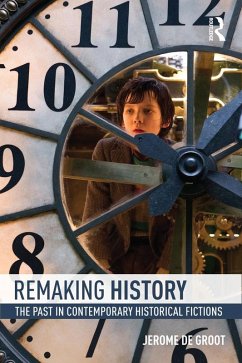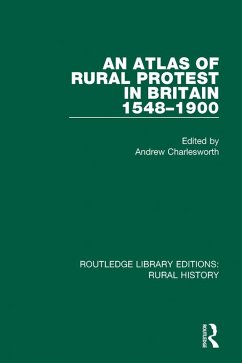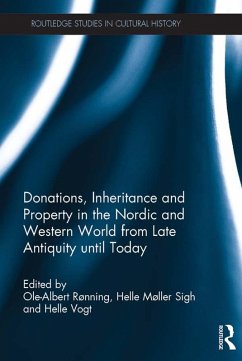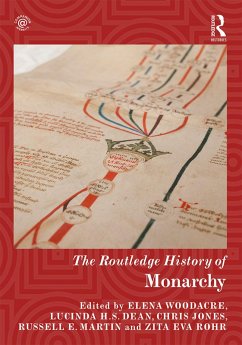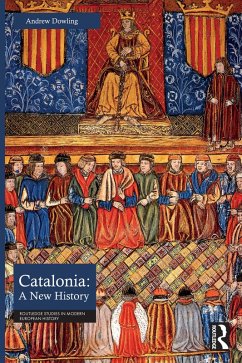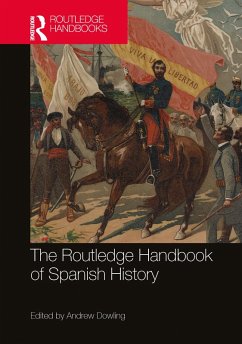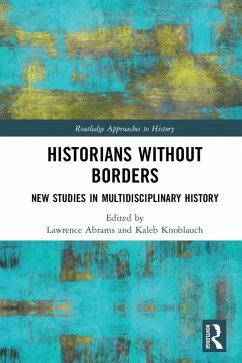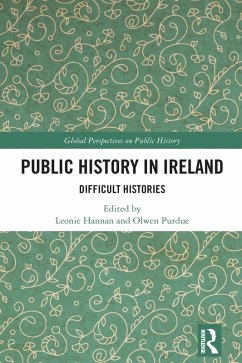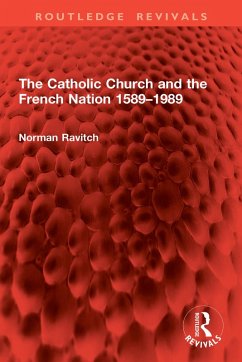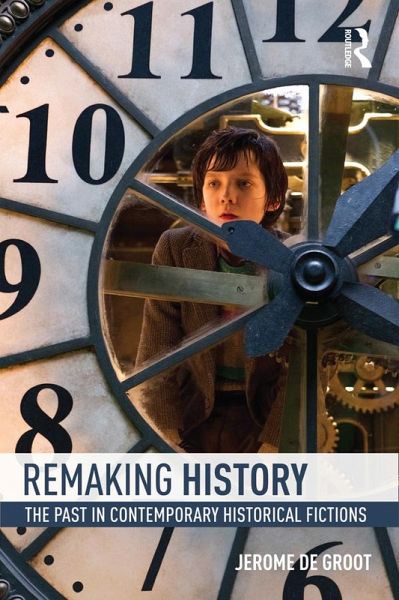
Remaking History (eBook, ePUB)
The Past in Contemporary Historical Fictions
Versandkostenfrei!
Sofort per Download lieferbar
44,95 €
inkl. MwSt.
Weitere Ausgaben:

PAYBACK Punkte
22 °P sammeln!
Remaking History considers the ways that historical fictions of all kinds enable a complex engagement with the past. Popular historical texts including films, television and novels, along with cultural phenomena such as superheroes and vampires, broker relationships to 'history', while also enabling audiences to understand the ways in which the past is written, structured and ordered.Jerome de Groot uses examples from contemporary popular culture to show the relationship between fiction and history in two key ways. Firstly, the texts pedagogically contribute to the historical imaginary and sec...
Remaking History considers the ways that historical fictions of all kinds enable a complex engagement with the past. Popular historical texts including films, television and novels, along with cultural phenomena such as superheroes and vampires, broker relationships to 'history', while also enabling audiences to understand the ways in which the past is written, structured and ordered.
Jerome de Groot uses examples from contemporary popular culture to show the relationship between fiction and history in two key ways. Firstly, the texts pedagogically contribute to the historical imaginary and secondly they allow reflection upon how the past is constructed as 'history'. In doing so, they provide an accessible and engaging means to critique, conceptualize and reject the processes of historical representation. The book looks at the use of the past in fiction from sources including Mad Men, Downton Abbey and Howard Brenton's Anne Boleyn, along with the work of directors such as Terence Malick, Quentin Tarantino and Martin Scorsese, to show that fictional representations enable a comprehension of the fundamental strangeness of the past and the ways in which this foreign, exotic other is constructed.
Drawing from popular films, novels and TV series of recent years, and engaging with key thinkers from Marx to Derrida, Remaking History is a must for all students interested in the meaning that history has for fiction, and vice versa.
Jerome de Groot uses examples from contemporary popular culture to show the relationship between fiction and history in two key ways. Firstly, the texts pedagogically contribute to the historical imaginary and secondly they allow reflection upon how the past is constructed as 'history'. In doing so, they provide an accessible and engaging means to critique, conceptualize and reject the processes of historical representation. The book looks at the use of the past in fiction from sources including Mad Men, Downton Abbey and Howard Brenton's Anne Boleyn, along with the work of directors such as Terence Malick, Quentin Tarantino and Martin Scorsese, to show that fictional representations enable a comprehension of the fundamental strangeness of the past and the ways in which this foreign, exotic other is constructed.
Drawing from popular films, novels and TV series of recent years, and engaging with key thinkers from Marx to Derrida, Remaking History is a must for all students interested in the meaning that history has for fiction, and vice versa.
Dieser Download kann aus rechtlichen Gründen nur mit Rechnungsadresse in A, B, BG, CY, CZ, D, DK, EW, E, FIN, F, GR, HR, H, IRL, I, LT, L, LR, M, NL, PL, P, R, S, SLO, SK ausgeliefert werden.




